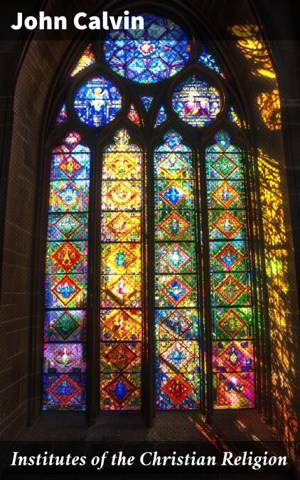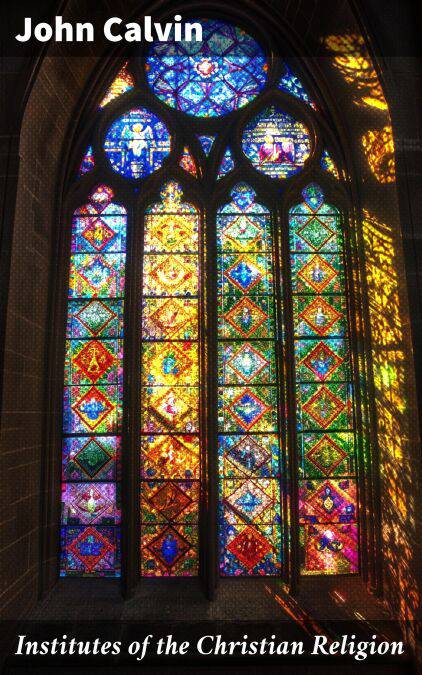
Bedankt voor het vertrouwen het afgelopen jaar! Om jou te bedanken bieden we GRATIS verzending (in België) aan op alles gedurende de hele maand januari.
- Afhalen na 1 uur in een winkel met voorraad
- In januari gratis thuislevering in België
- Ruim aanbod met 7 miljoen producten
Bedankt voor het vertrouwen het afgelopen jaar! Om jou te bedanken bieden we GRATIS verzending (in België) aan op alles gedurende de hele maand januari.
- Afhalen na 1 uur in een winkel met voorraad
- In januari gratis thuislevering in België
- Ruim aanbod met 7 miljoen producten
Zoeken
Institutes of the Christian Religion E-BOOK
The Basics of Protestant Theology
John Calvin
E-book | Engels
€ 2,49
+ 2 punten
Uitvoering
Omschrijving
John Calvin's *Institutes of the Christian Religion* stands as a monumental work in Reformation literature, meticulously articulating his theological perspectives and ecclesiastical vision. Written in a didactic style, infused with scriptural exegesis and philosophical rigor, the *Institutes* explore themes of divine sovereignty, predestination, and the nature of faith. Calvin's synthesis of scripture and human experience reflects the tumultuous backdrop of 16th-century Europe, where the Protestant Reformation challenged established norms and forked paths for spiritual inquiry and governance. As a seminal figure in Reformation theology, Calvin's upbringing and exposure to scholasticism, coupled with his commitment to reforming the church, greatly influenced the writing of the *Institutes*. His conversion to Protestantism and subsequent exile fostered a deep understanding of ecclesiastical authority and governance, ultimately shaping his vision for a reformed Christianity that emphasized personal faith and communal responsibility. His rigorous intellectual background and pastoral zeal resonate throughout this pivotal work, which has influenced generations of theologians. Readers seeking a profound understanding of Reformed Christianity and its foundational principles will find Calvin's *Institutes* indispensable. Its rigorous argumentation, combined with its devotional spirit, invites both scholars and seekers alike to engage with the complexities of faith, offering insights that remain relevant in contemporary theological discourse.
Specificaties
Betrokkenen
- Auteur(s):
- Vertaler(s):
- Uitgeverij:
Inhoud
- Aantal bladzijden:
- 1479
- Taal:
- Engels
Eigenschappen
- Productcode (EAN):
- 8596547787174
- Verschijningsdatum:
- 22/12/2023
- Uitvoering:
- E-book
- Beveiligd met:
- Digital watermarking
- Formaat:
- ePub

Alleen bij Standaard Boekhandel
+ 2 punten op je klantenkaart van Standaard Boekhandel
Beoordelingen
We publiceren alleen reviews die voldoen aan de voorwaarden voor reviews. Bekijk onze voorwaarden voor reviews.









